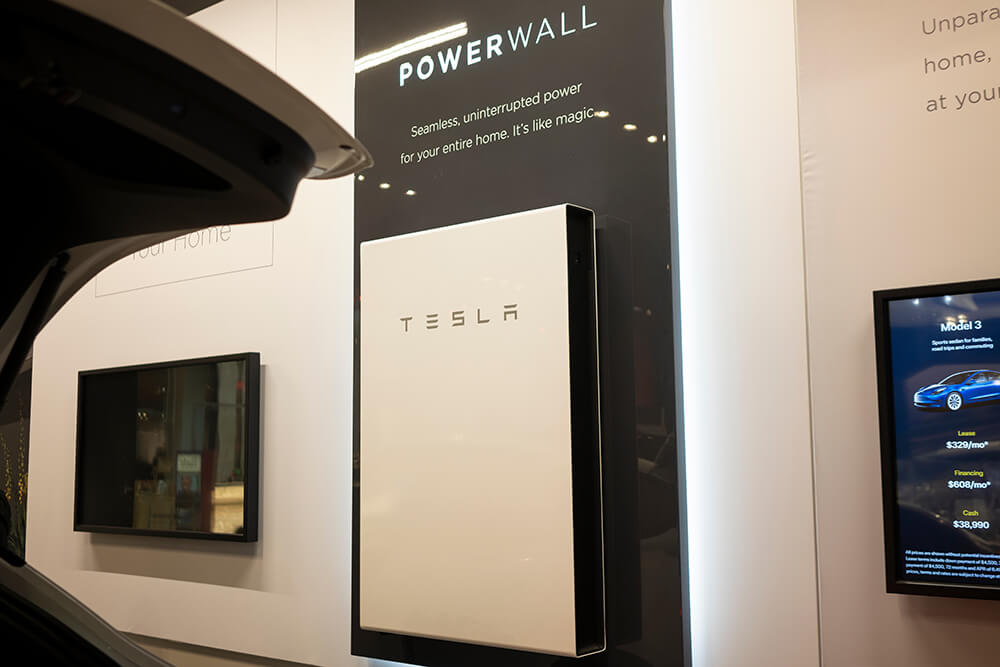How Do Solar Batteries Work: The Complete Guide
Solar batteries work by storing excess energy produced by your solar panels during the day. This energy is stored as DC electricity, which can later be converted into AC power and used by the homeowner or business.
When the energy produced by your solar panels exceeds your home’s immediate needs, the system charges your batteries, allowing you to draw on this stored energy when needed—such as during the evening or a power outage.
The benefits of solar batteries include the ability to reduce your reliance on electricity from the grid, lower your electric bill, and shrink your carbon footprint.

The Process Of Solar Batteries Powering Your Home
The process of solar batteries powering your home involves several key steps, ensuring that energy from your solar panel system is efficiently stored and used when needed. Here’s how the process works:
Energy Generation: During daylight hours, your solar panels capture sunlight and convert it into solar electricity in the form of DC electricity. This energy is first used to meet your home’s immediate power needs.
Excess Energy Storage: Any surplus energy that is not immediately used by your home is directed toward charging your solar battery. The battery stores this excess energy as DC electricity. At this stage, the system charges your batteries, ensuring that the energy produced by your solar panels doesn’t go to waste.
Energy Conversion: When the sun is not shining, such as at night or on cloudy days, your home will require energy from the battery. At this point, the battery can store the previously captured energy and release it. However, since most home appliances run on AC electricity, the stored DC electricity must first be converted to AC power using an inverter before it can be used.
Powering Your Home: Once the DC electricity is converted into AC electricity, it is used to power your home, running your appliances, lights, and other electrical devices. This means you can continue using solar electricity even when your solar panels aren’t actively producing energy, such as at night or during a power outage.
Backup Power in Emergencies: If there is a power outage, your solar battery system provides a reliable source of backup power, ensuring that essential appliances (like your refrigerator, lights, or medical devices) continue running. Depending on the capacity of your battery and your energy needs, the system can provide power for several hours or more, depending on how much energy has been stored.
What Are The Different Types Of Solar Battery Systems?
There are several types of solar battery systems available, each with unique characteristics suited to different needs:
- Lithium-ion batteries: These are the most common type of solar battery used today. Known for their efficiency, long lifespan, and high energy density, they store more power in a smaller space and are ideal for solar panel systems.
- Lead-acid batteries: Often cheaper, lead-acid batteries have been around for a long time and are commonly used for off-grid solar systems. However, they have shorter lifespans and lower efficiency compared to lithium-ion batteries.
- Flow batteries: Though less common, flow batteries are known for their scalability and long life, but they are bulkier and more expensive.
Each system works differently, but they all provide essential energy storage for your home, allowing you to use solar electricity whenever needed and offering backup power during outages.
How Can I Dispose Of My Solar Batteries?
If your business generates waste solar batteries, we are here to help. Our team specialises in recycling lithium-ion batteries that are commonly used for solar battery systems. This includes large volumes of li-ion waste that can then be transported to licensed recycling facilities. With our team, you can ensure that your clean energy remains green every step of the way.
